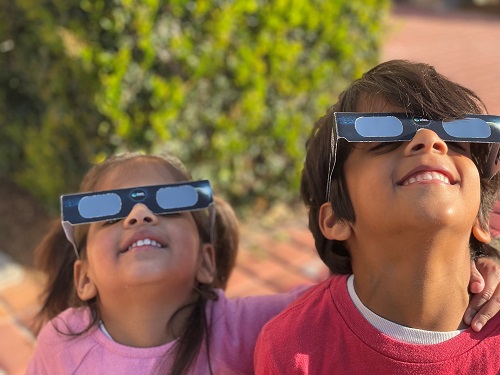February 17, 2026, Partial Solar Eclipse
February 17, 2026, a partial solar eclipse, is an upcoming celestial event that has captured the attention of astronomy enthusiasts worldwide. A solar eclipse happens when the moon passes in front of the sun, blocking the light from the sun and casting a shadow on the earth’s surface. In a partial solar eclipse, the moon does not completely cover the sun but only partially obscures it. This creates a breathtaking visual display; you can even see the sun’s corona, or outer atmosphere, with your own eyes.
The eclipse will begin over the South Pacific Ocean and move southeast toward Antarctica. It will then travel over the southern tip of South America, including parts of Argentina, Chile, and Uruguay, before ending in the South Atlantic Ocean.
Remember that looking directly at the sun during a solar eclipse can hurt your eyes, even if the sun is partially obscured. To stay safe, use specially designed solar viewing glasses or other safety equipment to observe the eclipse.
While solar eclipses are fascinating to people for many reasons, they’re significant to scientists. By studying the sun and its effects on the earth’s environment, they can better understand how to protect us from its harmful rays.
Even though the February 2026 partial solar eclipse might not be as well-known as other eclipses, it’s still an incredible opportunity for those living in parts of South America and Antarctica to see the moon move before the sun and experience temporary darkness during an eclipse.
If you plan to observe the eclipse, do it safely! You can accomplish this by using specially designed solar viewing glasses, telescopes with solar filters, or other specialized equipment.
The February 2026 partial solar eclipse will be an unforgettable experience for those living in parts of South America and Antarctica. It’s an incredible opportunity to see the moon’s movement in front of the sun and experience the darkness that comes with an eclipse. Just remember to stay safe and enjoy the unique display that nature has in store!
 Never look directly at the sun during a solar eclipse (except during the very brief time the sun is in total eclipse; and even then, with caution). Looking directly at the sun can cause permanent damage to your eyes. After viewing a solar eclipse, seek treatment from an eye care professional if you or your child have any changes in vision that continue to get worse.
Never look directly at the sun during a solar eclipse (except during the very brief time the sun is in total eclipse; and even then, with caution). Looking directly at the sun can cause permanent damage to your eyes. After viewing a solar eclipse, seek treatment from an eye care professional if you or your child have any changes in vision that continue to get worse.
